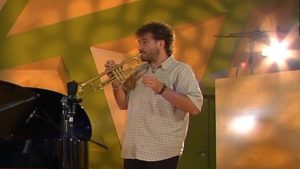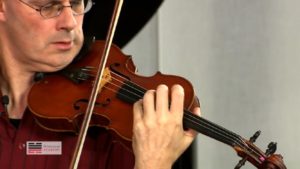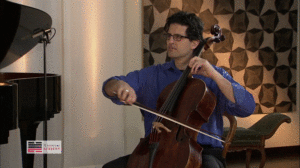Why Online Music Lessons Are So Effective
With the dawn of the internet, there is now a decades-old argument as to whether or not learning an instrument or piece of music online is better, or if musicians should simply stick with the old-fashioned in-person approach. This article will attempt to shed light on both sides of this debate.
TRADITIONAL MUSIC LESSONS
Ever since musicians began teaching each other privately in the comfort of their homes, in churches, and in personal studios, history has taught us that as musicians there is no debate about the merits of learning from another person. We are creatures of imitation, and for a master teacher to be able to correct posture of a student as they are playing, give the student live feedback as a mistake is being made, and provide constructive suggestions in real-time is unmatched. Even with our impressive modern technology, no computer or robot can match the decades of experience from a master musician.
Traditional music lessons, unlike online music lessons, provide the student with a very personalized teaching experience. The teacher not only understands a student’s personality and practicing behaviors, but they also know how to work with a student on a level that they’re ready for. For instance, an experience violin master teacher would never give a first-year violin student a Paganini concerto to work on – he or she would be working on their basic posture, bowing technique, and music theory to understand the basics of music itself.
ONLINE MUSIC LESSONS
When the internet was brought into existence, everything changed in the music world. CD’s, which were relatively new, were beginning to be sold as cheap MP3 files. Sheet music was now downloadable and could be composed and printed from home instead of being purchased from a retailer. However, one thing remained untouched: music students still need to learn how to play their instruments.

Online video lessons began to boom. Every kind of instrument began realizing its own unique teachers online. For iClassical Academy, it meant that students who didn’t have access to a music conservatory could learn online from master teachers from around the world. This meant that a potential rise in classical music was possible by teaching those who love it by video lessons.
THE BENEFITS OF ONLINE MUSIC MASTERCLASSES
When a musician attends a masterclass, he or she is taught on a stage in front of their peers performing a piece of music. Unfortunately, during these masterclasses, many times students might forget much of what they were taught because the teaching is occurring in real-time.
Online music masterclasses provide an opportunity for music students to pause a video, rewind, and watch the teacher teach a passage over and over again. This is extremely effective due to the law of repetition; just like practicing a musical passage over and over again, watching a music lesson in a video allows the student to watch a particular teaching multiple times until they get it just right.

Another benefit of online music masterclasses is that students have access to hundreds of different pieces of music. When attending a live masterclass, he or she may only have the opportunity to work with the master teacher on one piece of music. By having the option of video masterclasses, the student can access multiple pieces of music at any time, anywhere.
It’s also worth noting that by using online video masterclasses as a method of learning a particular piece, students can learn at their own pace. When learning from a master teacher in a live masterclass, the teacher may teach too quickly for the student to absorb everything he/she is telling them. By using videos to learn a piece, the student can absorb and reabsorb the same knowledge until it sticks to their memory.
THE DRAWBACKS OF ONLINE MUSIC MASTERCLASSES
Unfortunately, if everyone could be a professional musician simply from watching videos, many more musicians would have sold-out concerts and cheering audiences.
The key thing to remember about online music masterclasses and video tutorials is that they do not replace a real teacher. Video masterclasses for students of classical music most certainly cannot do this – however, they offer the benefit of learning a piece of music from a master teacher who they do not have access to in real life.
However, although online music lessons certainly have their drawbacks, it’s important to understand that they complement in-person lessons very well. In fact, many private music teachers recommend watching certain music tutorials and masterclasses from master teachers while they themselves cannot be there to teach them. After all, at the end of the day it is always up to the student how much they want to learn, and how far they want to go on their instrument.
LEARNING CLASSICAL MUSIC ONLINE
iClassical Academy prides itself on featuring some of the most accomplished Master Teachers on video, teaching young classical students from around the world. With the likes of Miriam Fried (violin), Evangeline Benedetti (cello), Peter Frankl (piano), Marco Pierobon (trumpet), and many others, we have amassed a great collection of these Master Teachers who have dedicated themselves to teaching classical music to the next generation.
It has been found that students who utilize online music masterclasses, in tandem with private music teachers, perform much better and learn much more quickly than their musical peers. The reason for this is because these students take the time to learn more about their instrument and pieces composed specifically for their instrument.

Online music lessons are incredibly effective because students who are dedicated to being the next generation of successful musicians – in this case, classical musicians – are willing to learn in any manner they can. Fortunately, the internet provides online music masterclasses to those who wish to have access to the best teachers in the world.
(If you are interested in watching masterclasses from a Master Teacher, click here to tell us a little more about what you’re looking for.)
